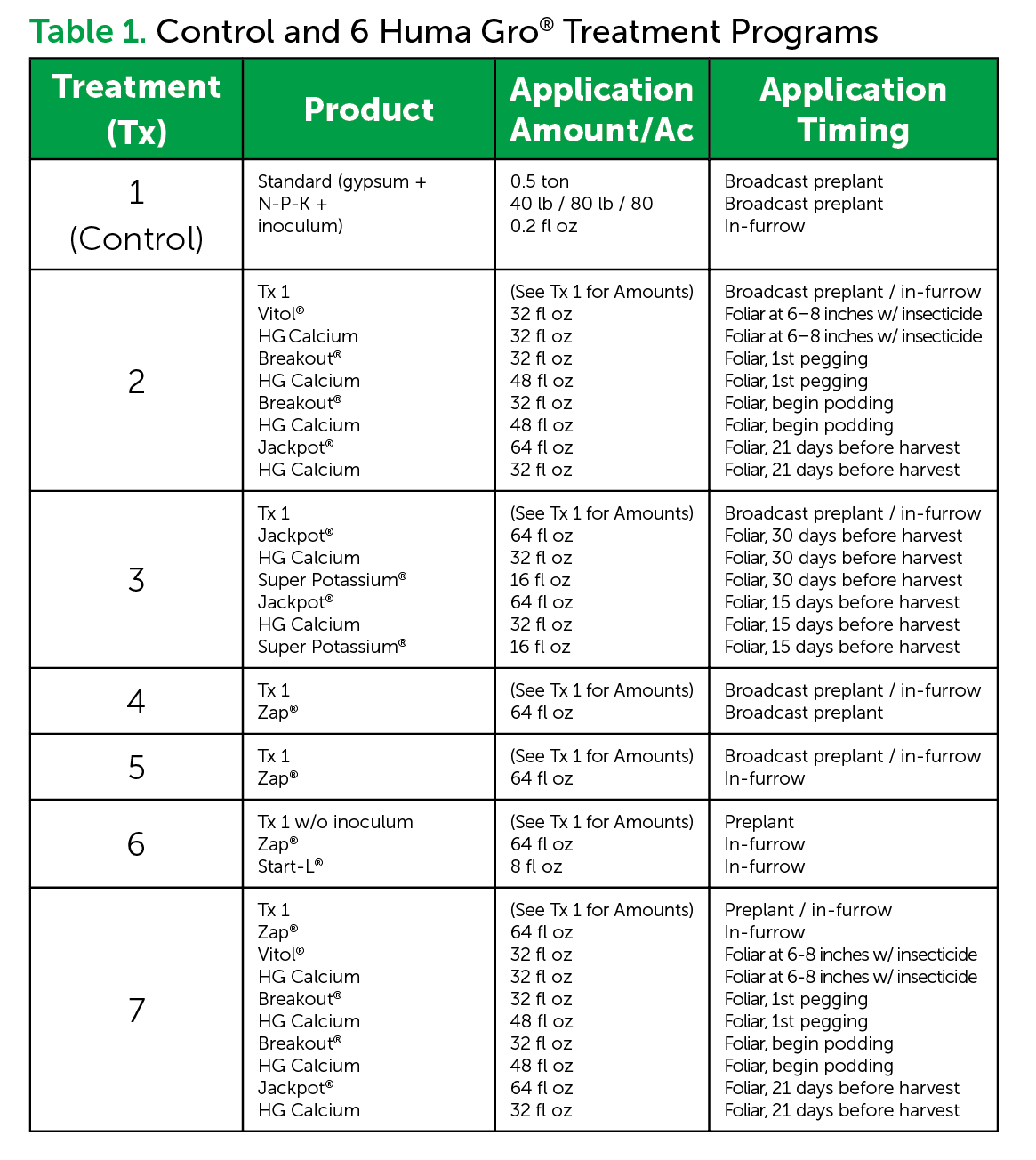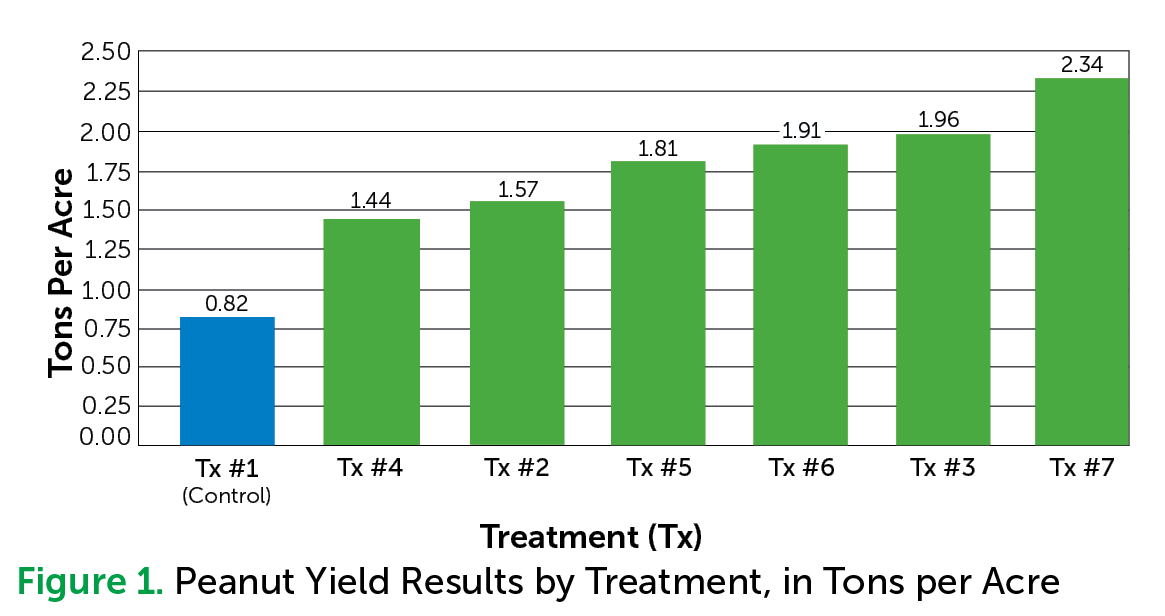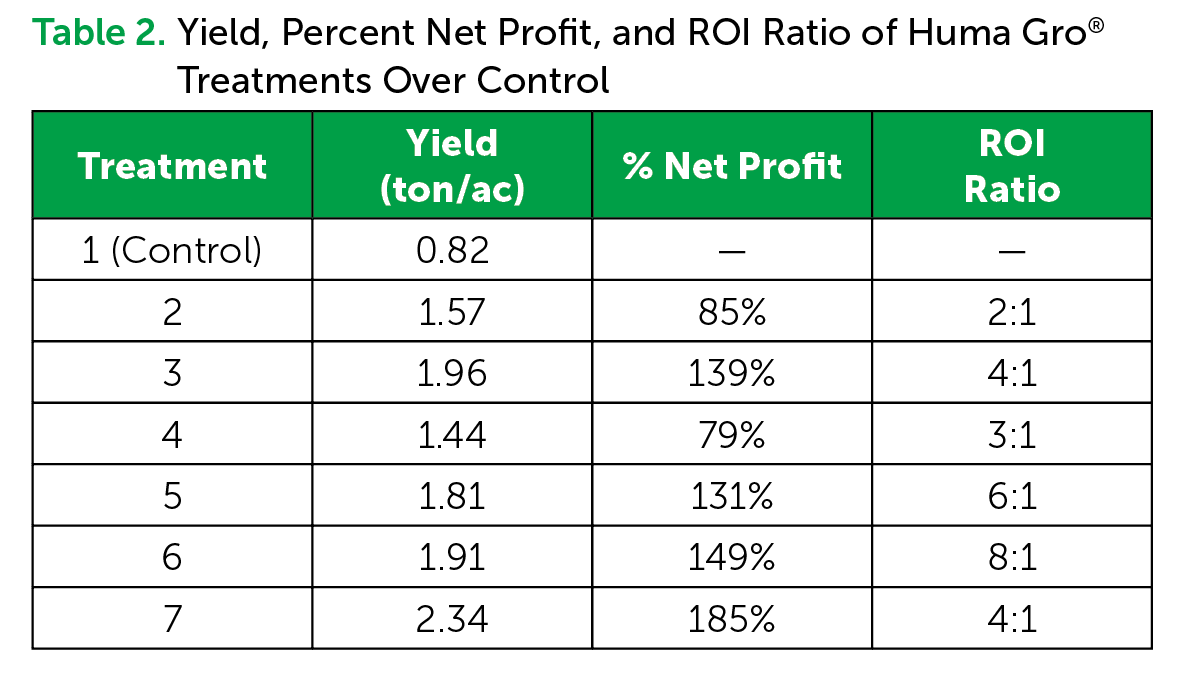Materials and Methods
This trial on peanut (Arachis hypogaea, Var. GA-12Y) was conducted in Memphis, Tenn. by AgriCenter International, as a randomized complete block study with 4 replications in 12.6’ x 30’ plots. The peanuts were planted on June 25 and harvested on December 14. Seven treatment programs were compared as shown in Table 1.
Results
All the Huma Gro® treatments yielded significantly higher than the grower standard (Control). Treatment 7 resulted in the highest yield (2.34 ton/acre) compared with the Control (0.82 ton/acre), with Treatment 3 next highest at 1.96 ton/ac. The average rainfall in Tennessee ranged from 20% to over 40% higher in 2019 than 2018. Generally, the average peanuts yield for the southern region is about 2 ton/acre. However, due to unfavorable weather conditions in the area the overall yield production was lower than normal for the Control treatment at 0.83 ton/acre. It is noteworthy that Treatment 7 (2.34 ton/acre) yielded 17% higher than the normal regional average peanut yield (2 ton/acre).
Based on a peanut market price of $440/ton, Table 2 shows yield and net profit, along with the return on investment (ROI) ratio, for the 6 treatments over the control. Treatment 7 showed the highest percentage of yield increase over the control (185%). An ROI ratio of 8:1 occurred for Treatment 6.
Conclusions
Micro Carbon Technology® in Huma Gro® soil and foliar products contributed to significant peanut yield and revenue increases in all the Huma Gro® treatments evaluated in this study. Though adding Huma Gro® products increased initial costs, the greater yields and net profits generated by the treatments resulted in a return on investment that paid for the cost and application of the Huma Gro® products many times over ($2–$8 dollars returned for every $1 spent).
Click here to view/download the complete report.
Related Posts

Huma Gro Article on Micronutrients in CropLife Magazine
CropLife Magazine currently features an article written by Huma Gro staff, “Micronutrients Are the Key To Better Yields.” The authors provide an overview of micronutrients and their relationship to the soil, common deficiencies, application methods, and the importance of following the 4Rs of Nutrient Stewardship. The article concludes by discussing the importance of developing a

Huma Gro® Program Increases Peanut Yield Under Severe Conditions
Materials and Methods This trial on peanut (Arachis hypogaea, Var. GA-12Y) was conducted in Memphis, Tenn. by AgriCenter International, as a randomized complete block study with 4 replications in 12.6’ x 30’ plots. The peanuts were planted on June 25 and harvested on December 14. Seven treatment programs were compared as shown in Table 1.

The Huma Gro Farmer Podcast: Episode 4 – Soil Biology and Soil Health with Promax®
By Jael Batty In Episode 4 of The Huma Gro Farmer podcast, we discuss Soil Biology and Soil Health with Promax®. Promax® is an OMRI-listed organic pesticide that kills soil pathogens and nematodes. Join us as we discuss crop protection with our experts, Bio Huma Netics, Inc. President and CEO Lyndon Smith, and Eastern U.S.




